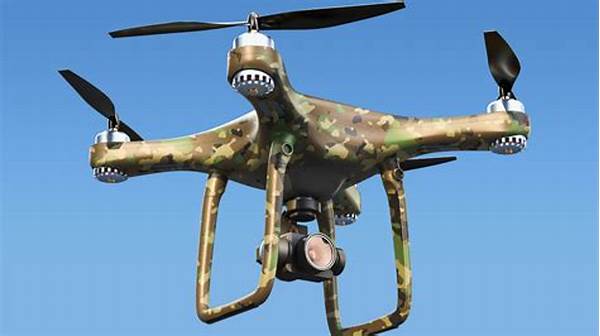The emergence of unmanned combat systems has marked a significant transformation in modern military operations. As technological advancements continue to evolve at a rapid pace, the military landscape experiences profound changes. The integration of unmanned systems for combat operations signals a pivotal shift in operational strategies, underscoring the potential to reshape the future of warfare.
Unmanned Systems and Technological Advancements
The rise of unmanned combat systems is driven by remarkable advancements in technology. With the development of sophisticated artificial intelligence, enhanced sensor capabilities, and autonomous navigation, these systems are increasingly becoming an integral part of military arsenals worldwide. Unmanned aerial vehicles, ground robots, and maritime drones are now deployed alongside traditional forces, demonstrating their efficacy in various combat scenarios. Their adoption is largely motivated by the desire to minimize human risk while maximizing operational effectiveness. As such systems reduce the need for human presence in high-risk environments, they represent a shift toward more strategic, precision-based warfare. The rise of unmanned combat systems also emphasizes the importance of maintaining technological superiority, as nations invest heavily in research and development to enhance their defensive and offensive capabilities.
Strategic Implications
The rise of unmanned combat systems is reshaping national military strategies. First, they enable operations in environments too dangerous for human troops, thus preserving lives while achieving strategic objectives. Second, they offer enhanced surveillance and intelligence-gathering capabilities, providing real-time data crucial for decision-making. Third, these systems promote sustained operations beyond human endurance limits. Fourth, they facilitate cost-effective missions by reducing manpower requirements. Lastly, their proliferation necessitates new doctrines and policies, ensuring ethical and responsible use.
Challenges in Implementation
Despite their advantages, the rise of unmanned combat systems presents several challenges. Firstly, the integration of these systems requires substantial financial investments, which can strain defense budgets. Secondly, the reliance on complex software and hardware necessitates robust cybersecurity measures to protect against potential vulnerabilities. Additionally, the legal and ethical implications of autonomous systems in combat situations prompt ongoing debates. Establishing clear rules of engagement and adhering to international humanitarian laws are paramount as these systems evolve. The rise of unmanned combat systems demands comprehensive training programs to ensure personnel are adept at operating and maintaining such advanced technologies, thereby securing their operational efficacy.
Ethical Considerations
1. The rise of unmanned combat systems invites ethical scrutiny concerning autonomous decision-making in warfare.
2. Ensuring compliance with international laws, such systems necessitate transparent protocols.
3. The potential for reduced human oversight raises concerns about accountability in operations.
4. Ethical deployment prioritizes minimizing civilian casualties and collateral damage.
5. Ongoing dialogue involving stakeholders is essential to address ethical challenges in the rise of unmanned combat systems.
Future Prospects
The advancement of technology suggests the rise of unmanned combat systems will only accelerate. Continued research and innovation are expected to drive improvements in autonomy, coordination, and mission efficiency. Collaborations between military and technology sectors are crucial to overcoming current limitations and exploring new applications. As such systems evolve, they will shape the strategic and tactical paradigms of future military operations, influencing both international relations and defense policies. The commitment to developing ethical and effective systems will ensure their responsible integration, preserving global peace and security in an increasingly complex geopolitical landscape.
Global Impact
The rise of unmanned combat systems has significant implications for global security dynamics. As these systems become prevalent, they contribute to a deterrence posture, altering the balance of power. Nations with advanced capabilities may gain leverage in diplomatic negotiations, potentially leading to an arms race in unmanned technologies. Conversely, their introduction can serve as a force for peace by deterring adversaries. Additionally, international collaborations and dialogues are imperative to establish norms and agreements that govern the use of such systems, thus preventing escalations and fostering trust among nations.
Conclusion
In summary, the rise of unmanned combat systems marks a transformative period in military operations, driven by technological innovation. These systems offer new strategic possibilities, enabling precision warfare while safeguarding human lives. However, their integration necessitates addressing ethical considerations, ensuring compliance with international laws and norms. The continuing evolution of unmanned combat systems commands a balance between embracing their potential and managing associated risks. Collaborative efforts among nations are critical to harnessing their benefits responsibly, shaping a secure and stable global future. The rise of unmanned combat systems, therefore, stands as both a challenge and an opportunity for military and political leaders worldwide.





